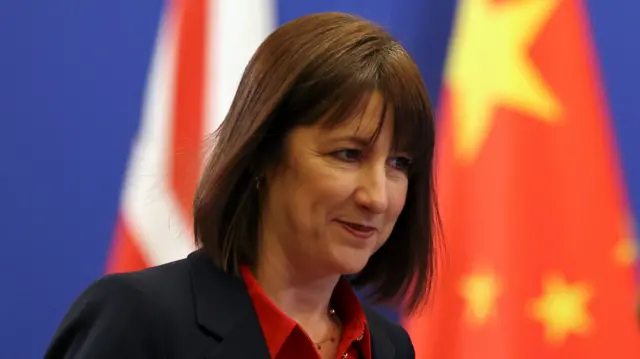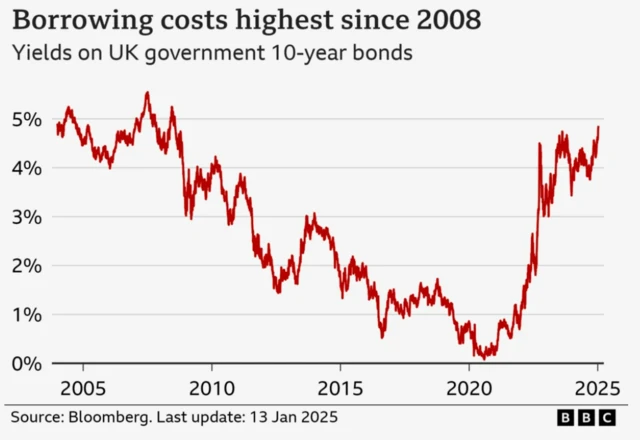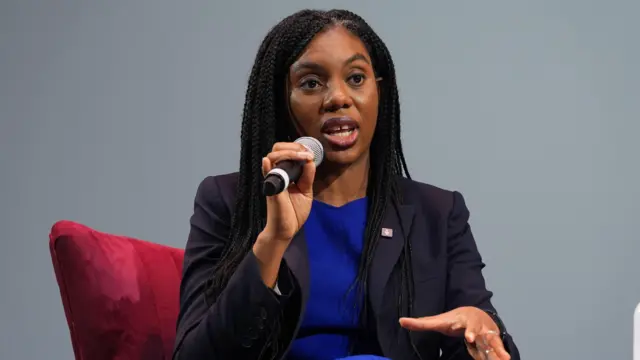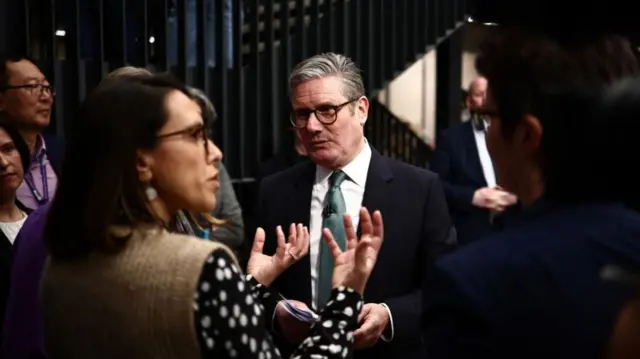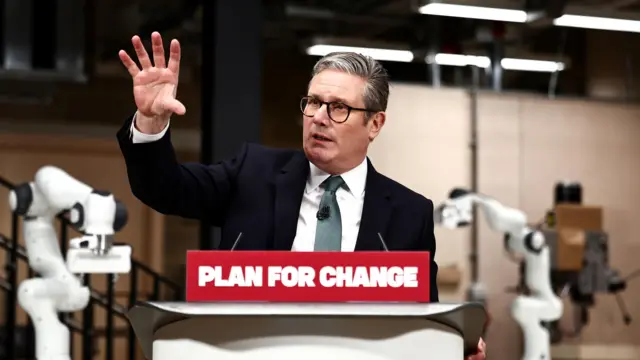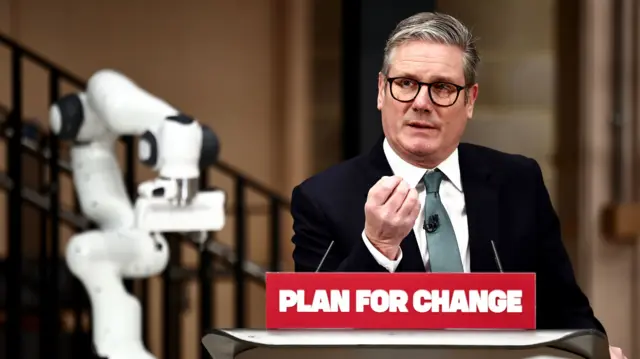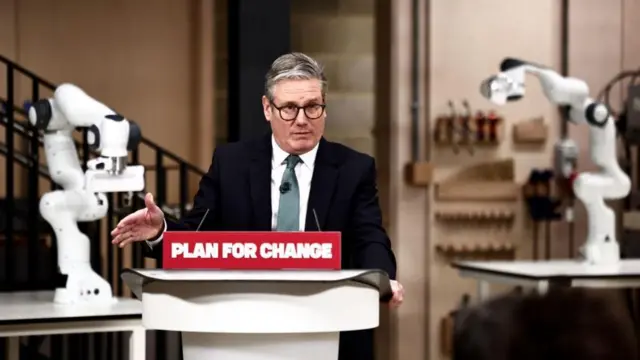Read more about AI plan and economic newspublished at 16:12 GMT 13 January
We'll be closing our live coverage shortly, but if you'd like to read more some useful links on the two main elements of this story are below:
On the less positive economic outlook, business reporter Mitchell Labiak has written this story on the fall on the pound and rise in the cost of borrowing to the government.



